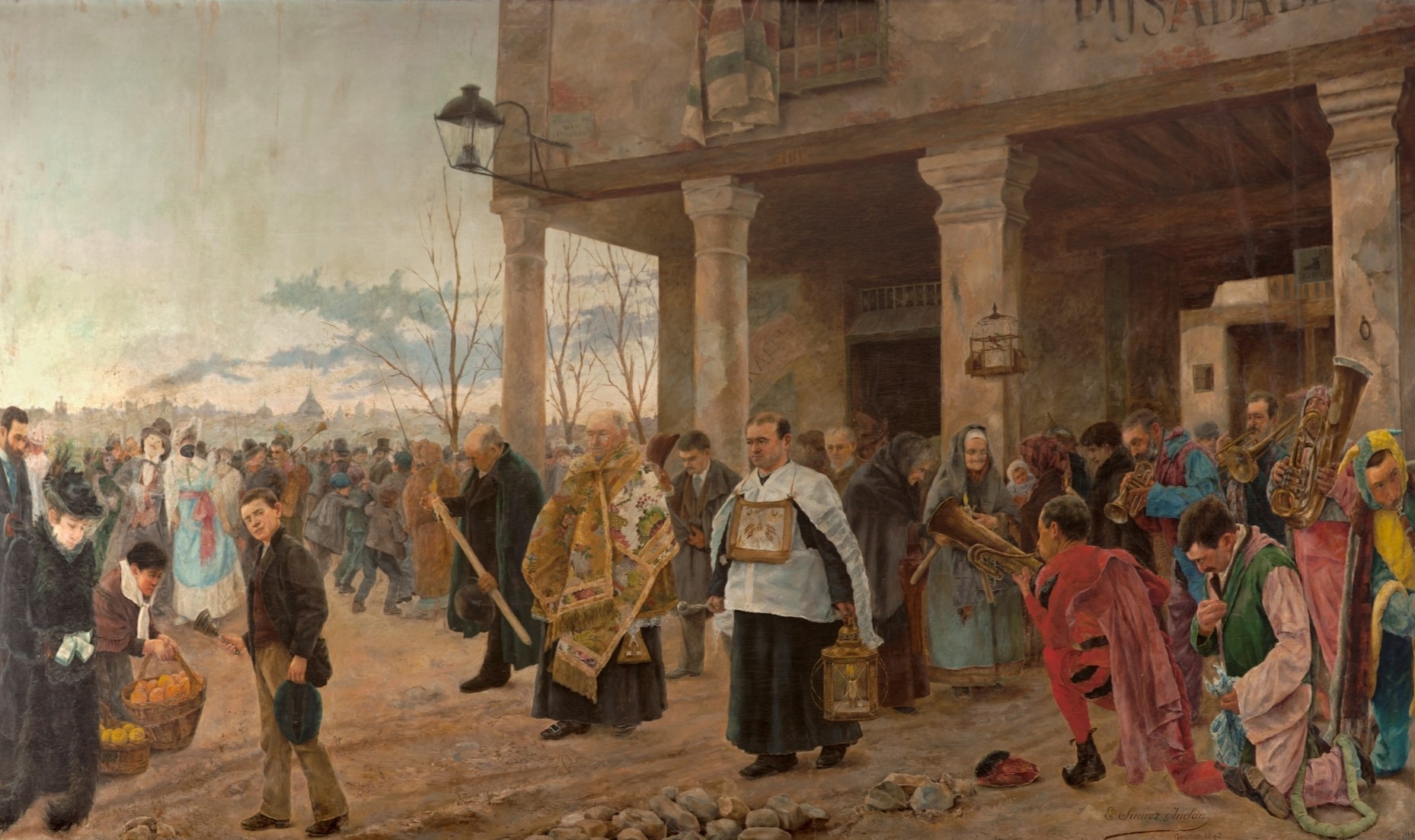This passage explains how the Blessed Virgin Mary’s profound humility drew God’s special favor, attracting the Incarnation itself. Don Caspar Gilli, following St. Francis de Sales, shows that Mary’s lowliness is what made her truly blessed — even more than her divine motherhood. Christ Himself affirms that true blessedness lies in humbly hearing and keeping God’s Word.
The Blessed Virgin Mary surpassed all the Angels and Saints in perfection and merit; and of all creatures none as she was so pleasing to God. Who, indeed, ever possessed so ardent a charity and so profound a humility? Where shall we find humility equal to that which appeared in Mary when, in answer to Elizabeth, she confessed that the cause of her happiness was that the Lord had deigned to regard the humility of His handmaid, and that therefore all generations should call her blessed?—Quia respexit humilitatem anciliæ suæ; ecce enim ex hoc beatam me dicent omnes generations.
“The Lord Hath Regarded the Humility of His Handmaid”
Many Doctors of the Church are of opinion that, when Mary said, ‘the Lord hath regarded the humility of His handmaid,’ it was not her intention to speak of her virtue of humility, because, although she was profoundly humble, she did not believe herself to be so; but that she thought only of her lowly state, her baseness, and abjection as a creature of God, and of the nothingness from which she had been drawn.
Did Mary Know Her Humility?
There are others, however, who hold a contrary, and perhaps more probable, opinion, and say that Our Lady intended to speak of her virtue of humility, being well aware that it was this virtue that had attracted Our Saviour to her chaste womb. We may well believe that Mary was aware that she possessed this virtue, and that she had no fear of losing it, being intimately persuaded that it was the effect of the grace of God within her and not of her own merits.
Indeed, we find the great St. Paul acknowledging that he possessed the virtue of charity, and in such decisive terms as would seem in others presumptuous rather than humble. He writes: ‘Who shall separate me from the charity of Christ?’—Quis me separabit a charitate Christi? ‘Shall tribulation, or distress, or hunger, or nakedness, or danger, or persecution, or the sword? I am sure that neither death nor life nor Angels shall be able to separate us from the love of God, which is in Christ Jesus our Lord.’ See Rom. viii. 35-39.
Notice the confidence with which this great Apostle speaks when he protests that there is no power in the world, or in hell, that is capable of separating him from the charity of his God. He believed that he possessed this virtue of charity; and in speaking thus he confided entirely in grace, and in his own merits by grace.
Humility: The Virtue That Attracts God
The glorious Virgin knew well that the virtue of humility has more power to attract the Heart of God to our hearts than all other virtues. The Divine Spouse in the Canticles seems to signify this, when he expresses his admiration for the beauty of the footsteps of his beloved: Quam pulchri sunt gressus tui in calceamentis, filia principis!—‘How beautiful are thy steps in shoes, O Prince’s daughter!’ (Cant, vii. 1), and then enumerates her other beauties. Judith did not captivate Holofernes so much by the rare beauty of her countenance and the splendour of her attire as by her sandals, or her shoes, which were probably embroidered with gold.
The Symbol of Mary’s Sandals
In like manner the Eternal Father, considering the variety of virtues that adorned Our Lady, was in admiration of her beauty; but when He cast His eyes upon her sandals He was so pleased that He sent His Only Son to become Incarnate in her chaste womb. What is signified by these sandals or shoes of Mary but her humility? These articles are the least valuable part of our attire, and the soonest covered with dust. Now, the spirit of true humility continually abases the souls who possess it, and annihilates them in their own eyes, and keeps them under the feet of everyone. Such is the property of this virtue of humility, which is the foundation of the whole spiritual life. It was this lowliness that the Lord looked upon in the Most Holy Virgin with so much complacency, and this look of His formed her whole greatness: Quia respexit humilitatem ancillæ suæ, ecce enim ex hoc beatam me dicent omnes generations. All generations shall call her blessed because God had regarded her.
Whichever of the two significations given to these words: God hath regarded the humility of His Handmaid be accepted, we find that the Holy Virgin always spoke with so much humility as to leave no doubt whatever that she considered all her happiness to proceed from her Lord having looked upon her lowliness. On this account the words of the Spouse of the Canticles are applied to her: Dum esset Rex in accubitu suo nardus mea dedit odorem suum—‘While the King was at his repose, my spikenard sent forth the odour thereof.’ The plant on which the spikenard grows does not grow up high like the cedars of Lebanon. But lowly as it is, it delights all by the sweetness it diffuses around. What a precious plant was the Most Holy Virgin, who never sought to exalt herself, although enriched by God with the most signal favours! She was always penetrated by the sense of her own abjection and nothingness; and in virtue of this humility she spread around, like the spikenard plant, so sweet a perfume that it ascended to the Throne of the Divine Majesty, and attracted the Son of God to descend and take flesh in her immaculate womb.
Christ Confirms Humility’s True Blessedness
We see, then, how dear humility is to God! Our Saviour taught this truth in His memorable reply to the woman who exclaimed aloud: Beatus venter qui Te portavit et ubera quæ suxisti—‘Blessed is the womb that bore Thee, and the paps that gave Thee suck.’ ‘Yea,’ said Our Lord, ‘rather, blessed are they that hear the Word of God and keep it’—Quinimmo beati qui audiunt verbum Dei et custodiunt illud. That is to say: ‘My Mother is indeed blessed on account of having borne Me in her womb; but more blessed is she on account of the humility with which she listened to the words of My Heavenly Father, and kept them.’ And this He again taught when He said that they who heard the Word of God and practised it were to Him as His Mother and His Brethren.
ooo
This article is taken from a chapter in The Month of Mary According to the Spirit of Saint Francis de Sales by Don Caspar Gilli which is available from TAN Books.









